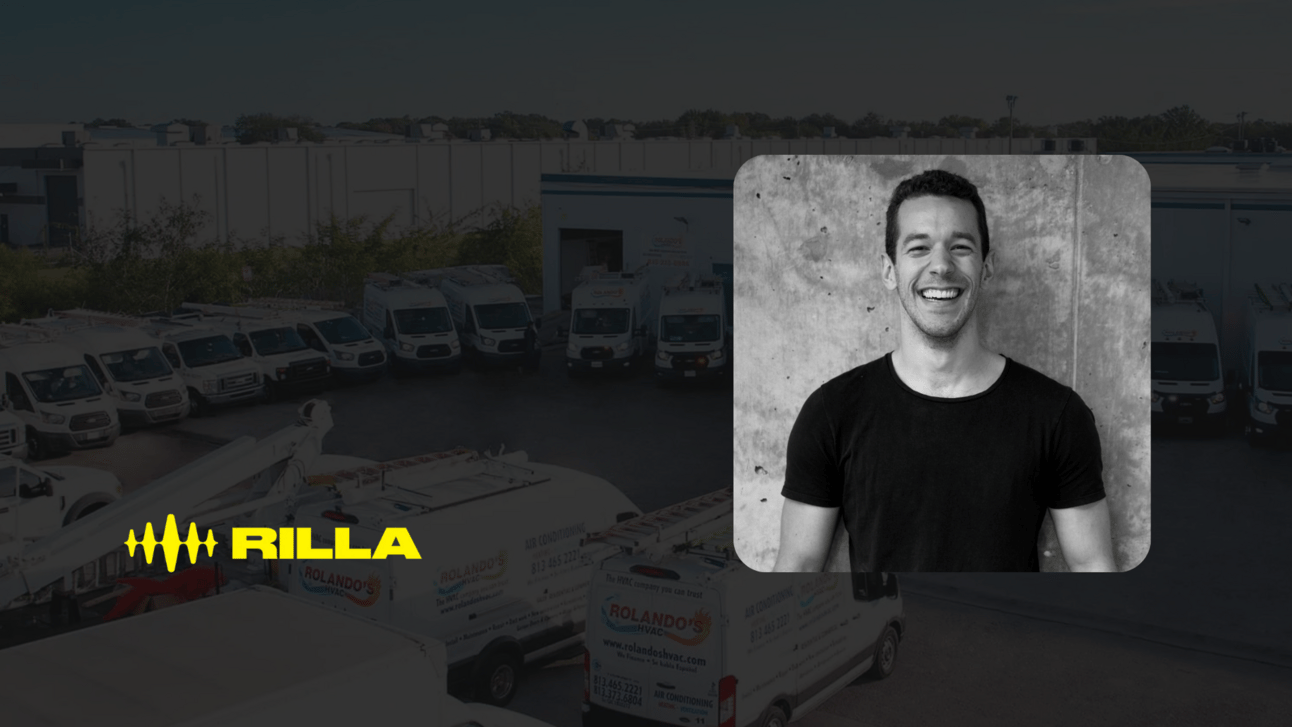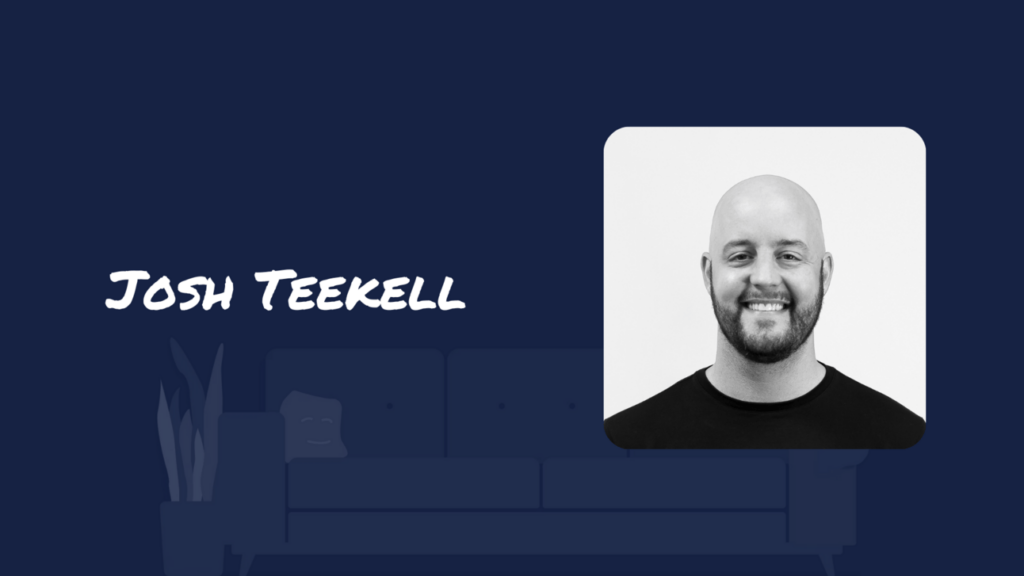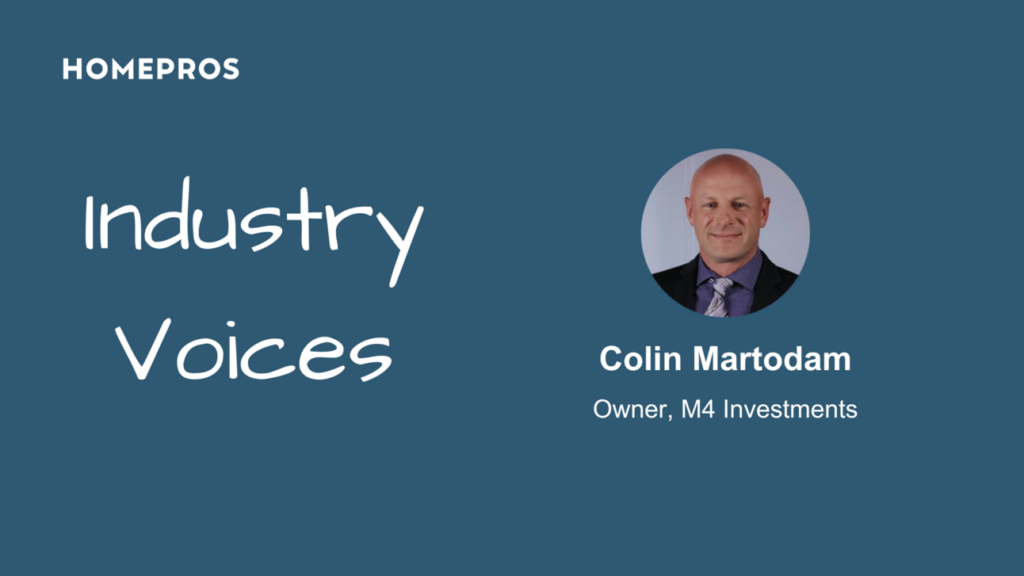Stand-up comedy, Bill Belichick, and the story of Rilla with CEO Sebastian Jimenez
Notes on sales conversations, technology, and what's next in home services

Logo: Property of Rilla
❝
Before Rilla, there was no other way to actually see what was going on in the home… It’s like telling Bill Belichick, ‘You’re gonna coach your players and track results, but we’re not gonna let you be on the field when the game’s going on.’
Sebastian Jimenez is the Founder and CEO of Rilla, the fast-moving software startup focused on helping home service contractors improve sales with speech analytics.
We talked about the founding insight of Rilla, the problems with traditional HVAC and plumbing sales, the industry’s future, and more. Our conversation’s been lightly edited for brevity and clarity.
Can you fill me in on your background?
I’m from the Dominican Republic and come from a long line of pineapple farmers; I went to NYU for college. I started doing stand-up comedy when I was a freshman, and it was the first time I figured I was doing something that wasn’t bullsh*t. The first time I did it, I was like, “Holy sh*t, this is it.” It forces you to understand that failure is a critical part of the creative process. Even the best comedians, you learn, fail more than 50% of the time — it’s gonna take you a couple of tries to get it right.
When I was a junior, I got an internship with a Forbes author who was interviewing all these tech founders. I got the internship because he needed someone funny to punch up his articles; it was a great gig for me to practice my comedy.
But for the first time, I was introduced to tech, and the way these founders described their companies was very familiar to what I was doing with stand-up. They had an idea, and even if it was correct, it was so wrong in a thousand different ways. I started getting slowly obsessed, and by the time I graduated I had to make a choice: focus on stand-up or tech? I decided to try tech, knowing I could go back to stand-up if I failed.
I’m thinking about how one goes from stand-up comedy to HVAC-focused software. When did Rilla come into the mix?
I launched my first tech company out of college — it was the stupidest idea. We came out with a political canvassing tool during the midterm elections. When politicians go door-knocking, it’s very paper-based, so we thought we should digitize it. We made a whopping $600 a month, and then the midterms ended, and people stopped campaigning.
I found this company called Getaround that was looking for brand ambassadors — like field marketers that Coca-Cola and Red Bull have on college campuses. We said, “Let’s just sell this tool to brand ambassador companies to help them manage their ambassadors better.” In three months, we went from $600 a month to $120,000 in annual revenue. Same product, same team, just different market.
One day I was talking to the field marketing manager at Heineken and said, “I notice you guys talk to 100 people per event,” and she confirmed it. I said, “But you guys do 50 events a week?” She said yes. So I said, “That’s 20,000 people a month you’re talking to,” and she said yes. I asked how many markets do these field marketing events, and she told me 200. So that’s 4 million people a month that they’re talking to; that’s a lot of people!
I realized all of Heineken’s commerce comes from offline interactions, as opposed to online, and that 85% of overall commerce happens offline. So we thought, “What if we can get in with their field salespeople? And why stop there? What about the people who sell HVAC and plumbing? Or sell in retail stores, like Gucci or Prada?”
I did the math — there are 10 million outside sales and service people in America who have about 10 billion face-to-face conversations with customers a month. That’s compared to 80 billion Google searches. If we could go out there and capture those 10 billion conversations, we could probably make offline commerce as searchable and easy to understand as Google did for the web. And that’s the vision for Rilla.
What problem did you notice, specifically, in the home services world?
It’s a one-word problem: ride-along.
One of our customers sells windows and told me, “I’ve been in this business for over 30 years, and I’ve seen everything change. Our marketing, call center, the windows themselves, the distribution channels, the consumer — everything has changed. The only thing that hasn’t is how we coach and manage our salespeople.” If they had a [sales] problem, the manager had to do ride-a-longs, which could take six hours all-in. Before Rilla, there was no other way to actually see what was going on in the home.
It’s like telling Bill Belichick, “You’re gonna coach your players and track results, but we’re not gonna let you be on the field when the game’s going on. You can make coaching assessments based on your assumptions and what players tell you.”
So how does a contractor actually utilize Rilla?
A comfort advisor goes into a home and does their usual process, the only difference is they record their conversation with Rilla. It takes the recording, transcribes it into text, and uses natural language processing to analyze what was actually talked about in the conversation.
So when the conversation gets processed, the sales manager can see how it went with a “report card” — a lot of our customers have a scorecard to rate comfort advisors on greeting, telling the company story, etc. Instead of doing it manually, Rilla does this for them, and there’s no “he said, she said.”
❝
With AI, there’s a new opportunity to become a market leader. It’s a new technology, it’s happening during a recession, and the industry’s hot and more sophisticated than it was in 2008.
What are some pushbacks you get from contractors?
The biggest one comes from the technicians/comfort advisors, and how they’ll feel about it. In the beginning, some of them hate it. It takes about a month or so to build the habit of using it every day, and once you do that, then you lose the fear.
Thoughts on the home service industries at large?
Home improvement is a great market. There’s basically a gold rush in the American home right now. Because of Covid, more people migrated to the suburbs; more people are working from home than ever; and if you’re spending more time at home, the wear and tear on your home systems is gonna be more.
[Looking ahead], for contractors who aren’t sophisticated, it’s gonna be really difficult to compete. You’re gonna have to get way smarter than you have before. These businesses are getting sophisticated; there’s a lot of smart money coming in.
Because of the environment — with interest rates up — it’s harder to get leads and it’s harder to close leads. In recessions, only the most effective businesses get all of the market share. The least effective businesses go out of business, and when that happens, the most effective ones have more market to go after.
With AI, there’s a new opportunity to become a market leader. It’s a new technology, it’s happening during a recession, and the industry’s hot and more sophisticated than it was in 2008.
What’s ahead for Rilla?
ServiceTitan brought cloud to the industry; they brought a system of record. What Rilla wants to do is become the intelligence layer on top of your system of record — to help you interpret what’s going on in your market.
We want to enable your service managers to ask, “Why is my market down this month?” Rilla analyzes your data and says, “Your market’s down because your conversion went down, and your conversion went down because you have a new competitor in the area who’s undercutting you on price.”
Since starting the company, what’s the best meal you’ve had on the road?
It was in Alexandria, Louisiana. We were there with a customer and they took us out for crawfish. It was one of the best meals I’ve had in my entire life. I ate like 5,000 calories of crawfish and gumbo.
Anything else on your mind?
As a contractor, when evaluating tech vendors, don’t focus on the product at all. Focus on the company that’s building the product. Because aside from the software, what is the service you’re paying for? Why do you keep paying your software vendor year after year? The service is innovation. You’re paying for the service of improving the product every year.
📬 Get our stories in your inbox
Keep reading
The smart approach to maintenance agreements with SmartAC.com CEO Josh Teekell
Notes on proactive equipment monitoring, smart maintenance, and technology's future in HVAC
Industry Voices: M4 Investments’ Colin Martodam
October 27, 2023
Trump order creates uncertainty for HVAC rebate programs
The President on Monday signed an order requiring the Department of Energy to “immediately pause the disbursement of funds” under the IRA


